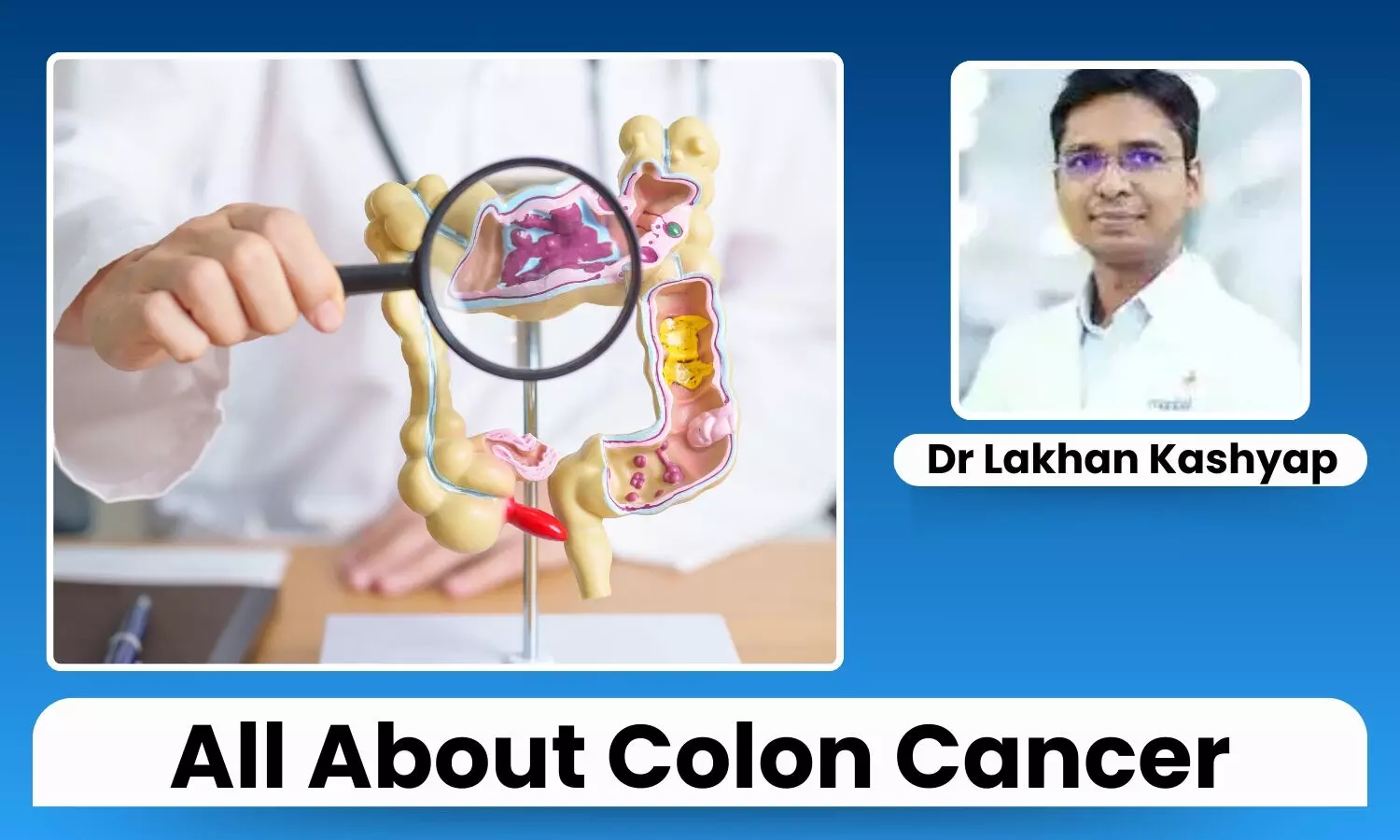Colon Cancer: Symptoms and When to Get Tested - Dr lakhan Kashyap

Colon cancer starts in the colon, a section of the large intestine. The first and longest segment of the big intestine is the colon. While it can occur at any age, colon cancer usually strikes older persons.
Inside the colon, it usually starts as tiny clusters of cells known as polyps. Although most polyps are not malignant, some have the potential to develop into colon cancer over time.
Signs and Symptoms of Colon Cancer:
Many colon cancer patients first show no symptoms. The size of the malignancy and its location in the large intestine will probably determine when symptoms manifest.
Colon cancer symptoms can include:
- A shift in bowel patterns, like constipation or diarrhea that occurs more frequently.
- Either blood in the stool or rectal bleeding.
- Persistent pain, gas, or cramping in the abdomen.
- A Sensation that during a bowel movement, the intestine does not empty
- Fatigue or weakness.
- Losing weight without making an effort.
Causes of Colon Cancer
Most colon cancers have no known cause. When changes to DNA occur in colon cells, colon cancer occurs. The instructions that inform a cell what to do are encoded in its DNA. The changes that occur instruct the cells to divide rapidly.
Usually healthy cells die at the end of their normal life cycle, these alterations allow the cells to survive. Too many cells are produced as a consequence. The cells can build up into a mass known as a tumor.
Healthy body tissue can get invaded and destroyed by the cells. The cells may eventually separate and disperse to other regions of the body. Metastatic cancer is the term used to describe cancer that has spread.
When to Have a Colon Cancer Test?
Colon cancer screening is recommended for early detection, particularly in high-risk individuals. Age, family history, and individual health issues are some of the variables that affect testing recommendations.
- Age-Based Screening: If risk factors are not present, routine screening is usually advised starting at age 45 or earlier.
- Family History: Having close relatives with a history of colon cancer or polyps raises the risk of getting the disease and necessitates early and more regular testing.
- Personal Medical History: People who have inflammatory bowel conditions, such as ulcerative colitis or Crohn's disease, are more vulnerable and should be monitored frequently.
- Existence of Symptoms: Regardless of age, anyone exhibiting ongoing symptoms, such as inexplicable rectal bleeding or ongoing digestive problems, should be examined.
Methods of Screening
There are several diagnostic procedures available to identify colon cancer early on:
- Colonoscopy: A colonoscopy is a procedure that enables direct colon vision and, if polyps are discovered, their removal.
- Feces-Based Tests: The fecal immunochemical test (FIT) and the fecal occult blood test (FOBT) are two tests that can identify blood that is concealed in the feces.
- Virtual Colonoscopy: Virtual colonoscopy, or CT colonography, is a non-invasive imaging procedure used to look at the colon.
Certain medications can lower the risk of colon polyps or colon cancer. For example, frequent use of aspirin or aspirin-like medications has been linked to a lower risk of colon polyps and colon cancer; however, it is unclear what dosage and duration would be required to lower the risk of colon cancer.
Daily aspirin use carries some risks, such as ulcers and bleeding in the digestive tract; these medications are usually only recommended for people at high risk of developing colon cancer; there is insufficient data to recommend them to those with an average risk of colon cancer.
Disclaimer: The views expressed in this article are of the author and not of Health Dialogues. The Editorial/Content team of Health Dialogues has not contributed to the writing/editing/packaging of this article.


